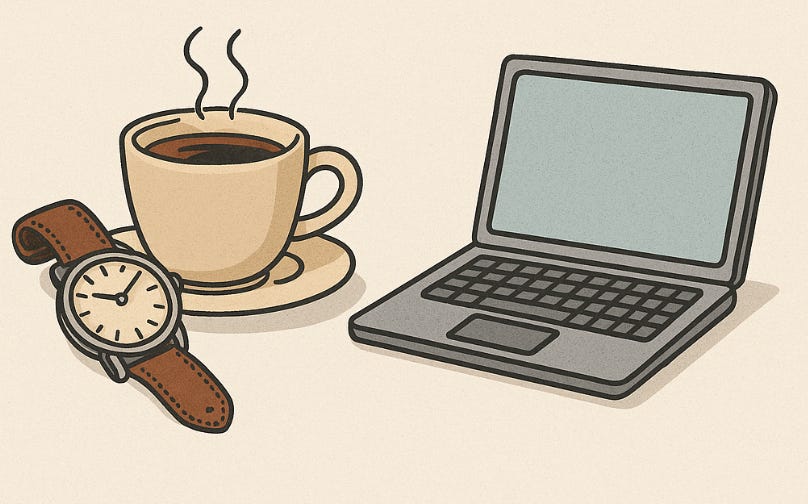Why Smart People Keep Making Dumb Work Decisions
We know good quality when we drink it—but forget it when we build software.
A $7,000 automatic watch? Worth it.
Single-origin coffee beans? Non-negotiable.
That beautifully handwoven rug from a family-run mill in Turkey? An heirloom.
Now cut to the same person at work:
“Can we find a cheaper vendor who can deliver this in 3 weeks?”
Welcome to the irony, where people with exceptional taste spend their professional lives making decisions based on cost and speed, not quality or judgment.
We Ask What’s Measurable, Not What Matters
On one side cost and speed are measurable and objective, on the other hand quality is judgment-based can be felt more than measured.
So instead of asking “What’s better?”, we ask:
“What’s the cheapest bid?”
“How soon can we ship?”
“Can we do this with fewer people?”
And we get exactly what we pay for.
Cheap Is Easier to Justify Than Good
Choosing the cheapest option? Easy to explain.
It fits neatly in a spreadsheet.
It looks smart on a procurement report.
And hey, if it fails—we saved money, right?
Choosing quality? Much harder.
You have to advocate for something intangible.
You need conviction.
And if it doesn’t work out? You’ll be asked why you didn’t go with the cheaper option.
Cheap is safe to explain.
Which is why it's also dangerously common.
Safe Choices Can Still Lead to Massive Failure
No one ever gets fired for choosing Salesforce.
But that hasn’t stopped it from becoming the graveyard of a thousand failed CRM projects.
I have personally witnessed a Salesforce “digital transformation project.” Fice years in making, millions spent, teams overwhelmed.
Consultants rotated in and out like seasons.
And yet—no one questions the decision. Because it was safe. Because it was big. Because it was known. Around this time, we were able to build, release and onboard almost 1000 users on the “stop gap” custom software we developed for the enterprise.
But known doesn’t mean right.
And expensive doesn’t mean better.
Salesforce isn’t the villain here—lazy decision-making is.
Chasing Speed Often Creates More Waste
It’s not just cost. It’s speed.
Teams aren’t just asked “How much?”—they’re pressured with “How soon?”
But here's the truth: you can move fast and still build garbage.
You can also move fast and build something great—but that takes judgment, clarity, and focus.
If you only measure velocity and cost, you’ll eventually pay for it in maintenance, rework, burnout, and missed opportunity.
The Sweet Spot Exists, But It’s Harder to Sell
Somewhere between the bloated consultancies and the desperate startups is a sweet spot:
Boutique builders with taste.
Small, focused teams who care deeply about outcomes.
People who say “no” to mediocrity, even when it's cheap and fast.
These are harder to find.
Harder to justify on a spreadsheet.
But they deliver results that don’t fall apart two quarters later.
Ask Better Questions to Get Better Outcomes
If we only ask “how fast” and “how cheap,” let’s not act surprised when we get work that’s neither durable nor delightful.
The fix isn’t just to spend more.
It’s to ask better questions:
“What’s better?”
“Who has judgment?”
“Where’s the long-term value?”
Because better is better.
And often, better turns out to be faster and cheaper too.




